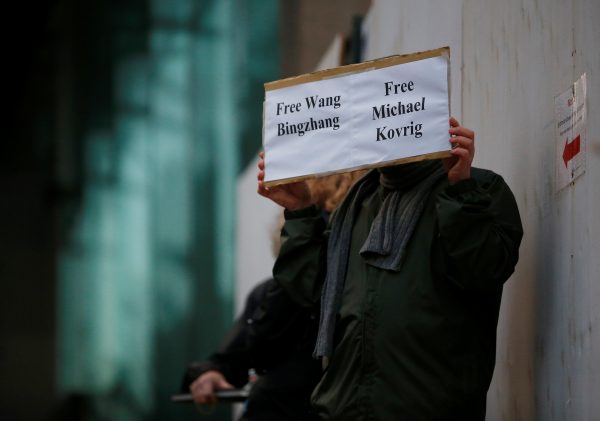In its wake came the detention of two Canadians by China’s Ministry of State Security and the imposition of a death sentence on a Canadian convicted of drug smuggling. Then came inflammatory comments by ambassadors in both countries (that led one, the Canadian, to resign), a righteous war of words between the two governments, reciprocal travel advisories and a Canadian effort to internationalise the issue by calling on friendly governments to condemn the Chinese detentions.
Court proceedings on the extradition request are due to resume in early March 2019. Based on the complexity of the issues involved and parallel cases, a final decision lies months or years away. Whatever the ruling, it will have major implications for future cases related to extraterritorial application of US laws and the political purposes behind extradition requests.
For Canada and China, the initial damage is significant: a chill in business deals, trade missions on hold, postponement of official visits, a drop in tourist numbers and mutual anxiety that there is potential for further escalation. Public attitudes on both sides have soured.
In Canada there has been an unprecedented outpouring of negativity across the political spectrum about Chinese actions. A national survey conducted by a research team at the University of British Colombia in the first week of February 2019 found a precipitous drop in favourable views of China (now at 22 per cent, down 14 points in 16 months). A majority of respondents (60 per cent) support the Liberal government’s actions.
But the Meng affair has significance far beyond a bilateral diplomatic conflict. It indicates how Canada, like other countries, is being pulled into the deepening conflict between the United States and China. The same survey revealed a similar drop (down 16 points) in favourable views of the United States.
One element of this larger, strategic tug-of-war is the looming decisions on Huawei’s involvement in the Canadian 5G system. This issue was complicated enough before the Meng affair. It is now even more so in light of multi-level US pressure on Ottawa to ban Huawei outright and public negativity about dealing with any major Chinese company.
Ottawa is postponing an immediate decision and still reviewing the multiple factors at play. There remains considerable internal debate about matters of cost, quality, research and development opportunities, the security risks of working with Huawei, mitigation strategies, the virtues of multiple vendors and how far to rely on Five Eyes judgements.
There is also recognition that behind the 5G issue are much bigger forces of techno-nationalism operating in both the United States and China and a headlong competition for domination of the Fourth Industrial Revolution. The Huawei 5G decision is only the tip of the iceberg. A host of other choices are piling up on Chinese investments, export controls, research collaborations, definition of dual use and sensitive sectors, and the establishment of international standards.
It is anything but clear how widely the Trump administration will define the technological sectors that it sees as matters of national security. The initial list is daunting, ranging from artificial intelligence, robotics and quantum computing through to bio-pharmacy and clean tech.
But it is very clear that technological innovation is at the core of the current trade dispute with China. There also clearly exists an unprecedented whole-of-government, whole-of-society consensus in the United States for a harder line with China on multiple fronts. At least some favour a deep economic and technological decoupling sometimes described as a technological iron curtain.
Few dispute that the Meng affair features a Canada unwittingly and unwillingly dragged into the vortex of a US–China struggle. Many feel that Canada was thrown under the bus by a Trump government speeding into a confrontation with China. While a substantial number of Canadians now want to get onboard that US bus, a significant number of others fear being tied to the bumper and dragged into an unnecessary and devastating Cold War.
Beyond the immediate decisions that Ottawa must make in an election year is the refashioning of a narrative for Canada–China relations. Engagement based on the proposition that it will produce political liberalisation or the adoption of Western-style capitalism is no longer credible. It will be no easy matter to frame a post-engagement strategy that emphasises living with, rather than changing, China. That strategy would have to focus on cooperation whenever possible and opposition when necessary, with confidence that an international order that includes both the United States and China can be fashioned through imagination and accommodation.
The drama that will re-commence in a Vancouver courtroom in March is a very Canadian story. But as Australians and others who have agonised about their China choices already know, it is one playing on screens around the world.
Paul Evans is Professor in the School of Public Policy and Global Affairs at the University of British Columbia. This article is based on the Glyn Berry lecture the author presented at Dalhousie University on 8 February 2019.

